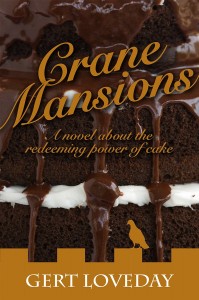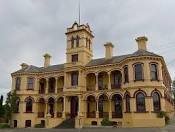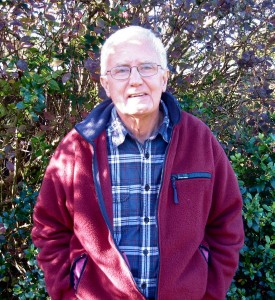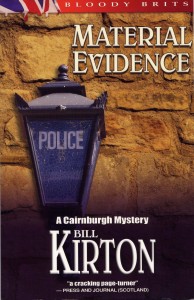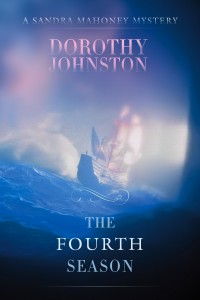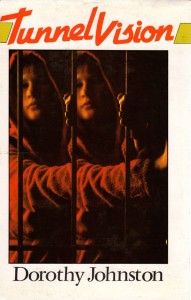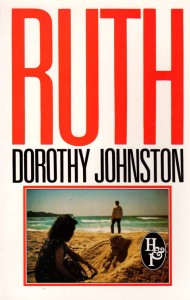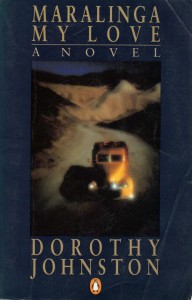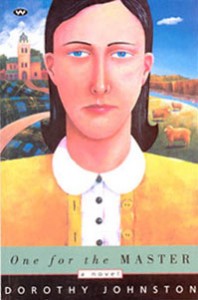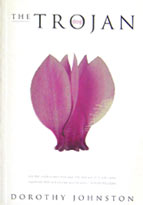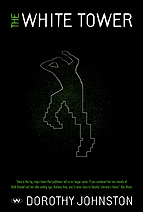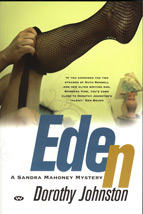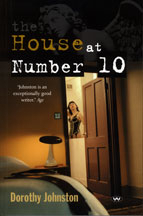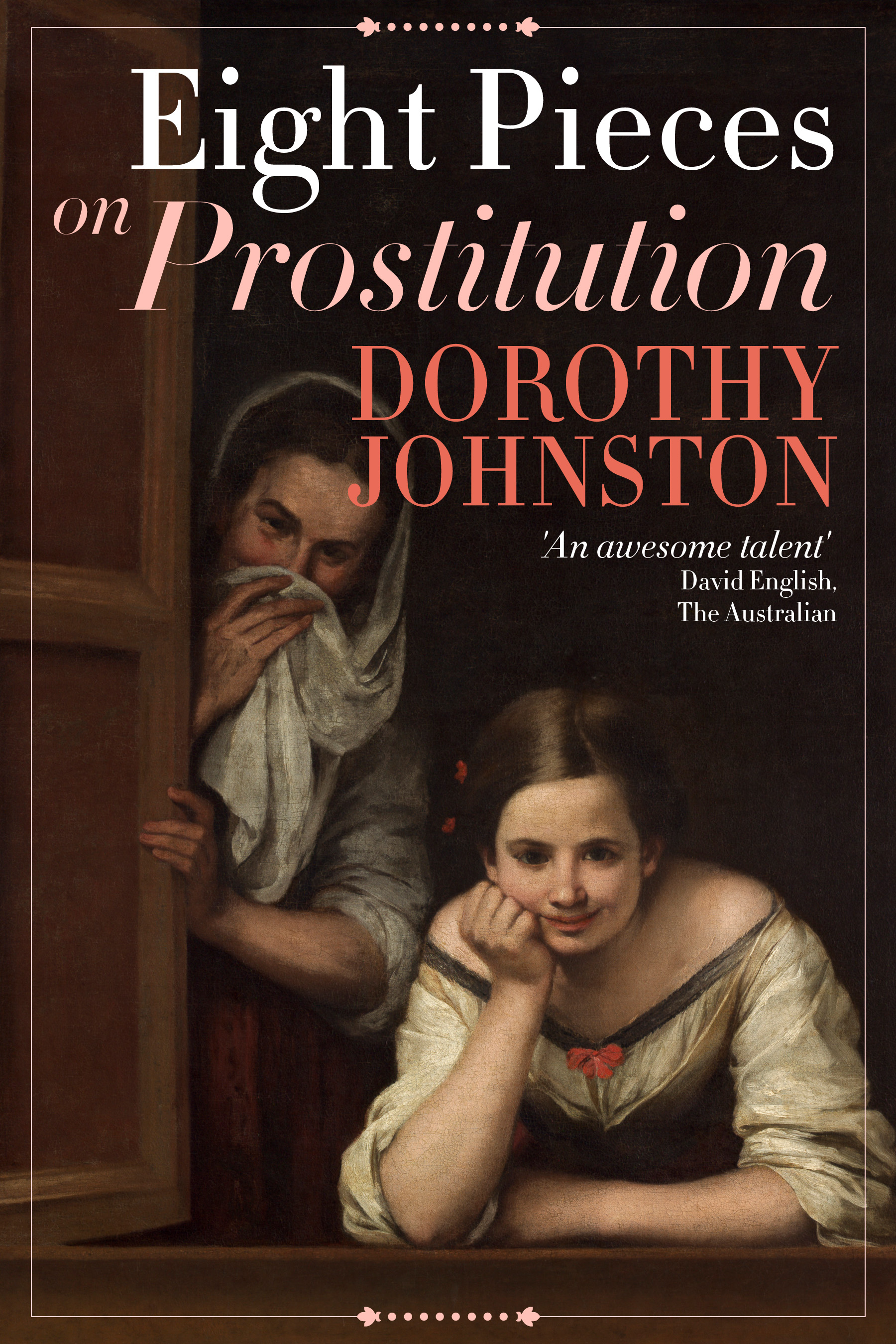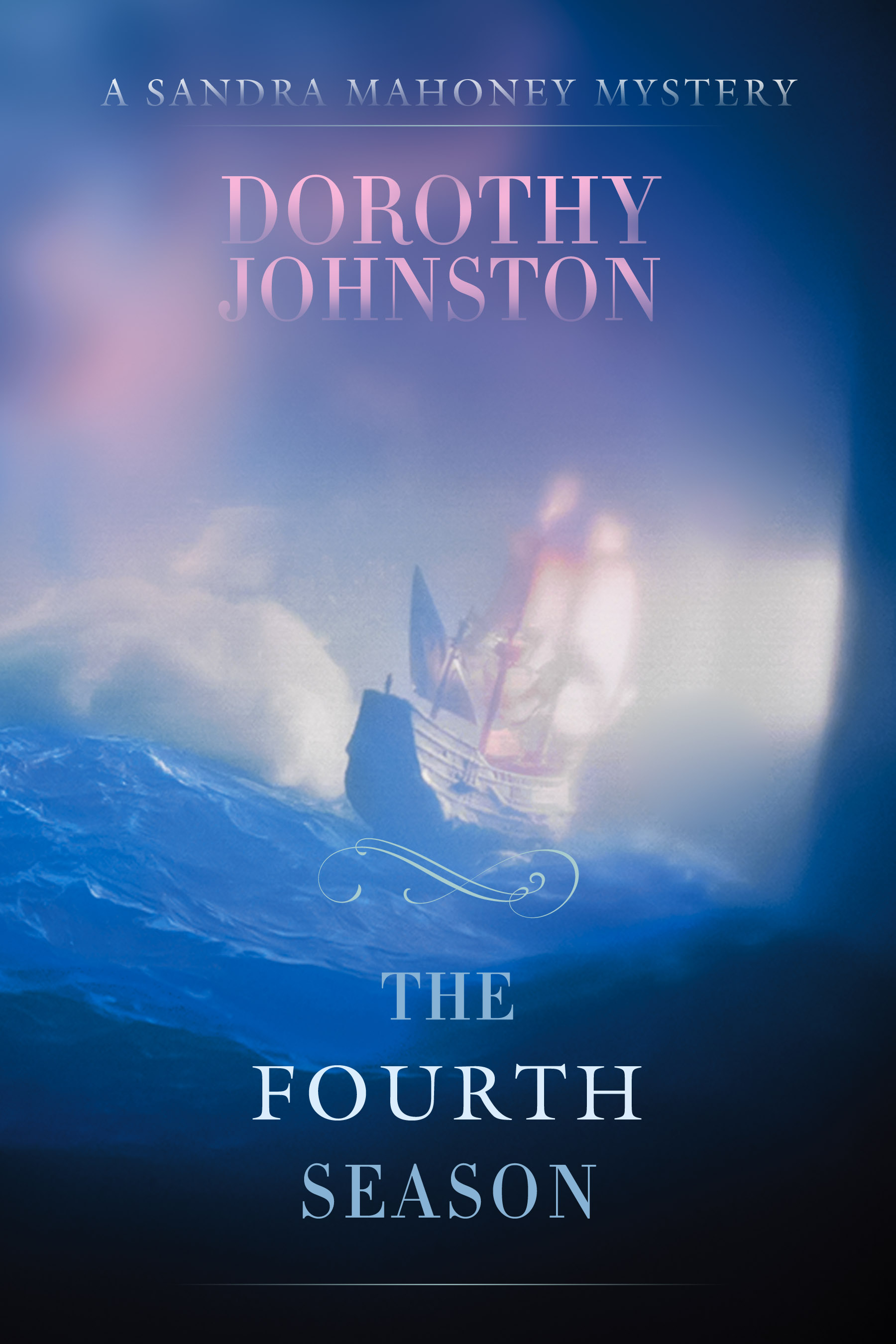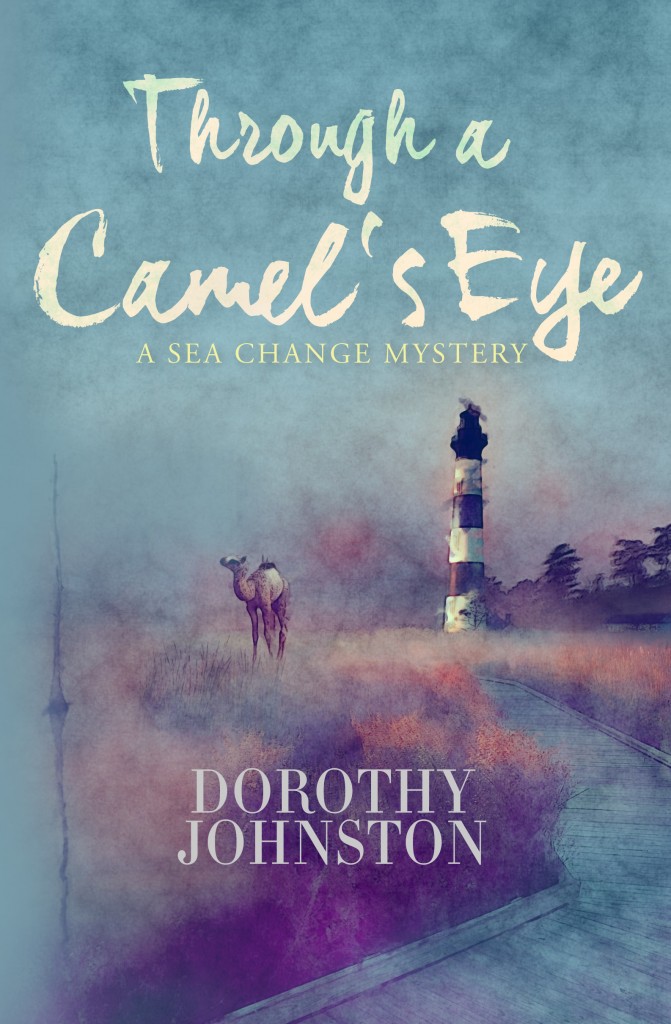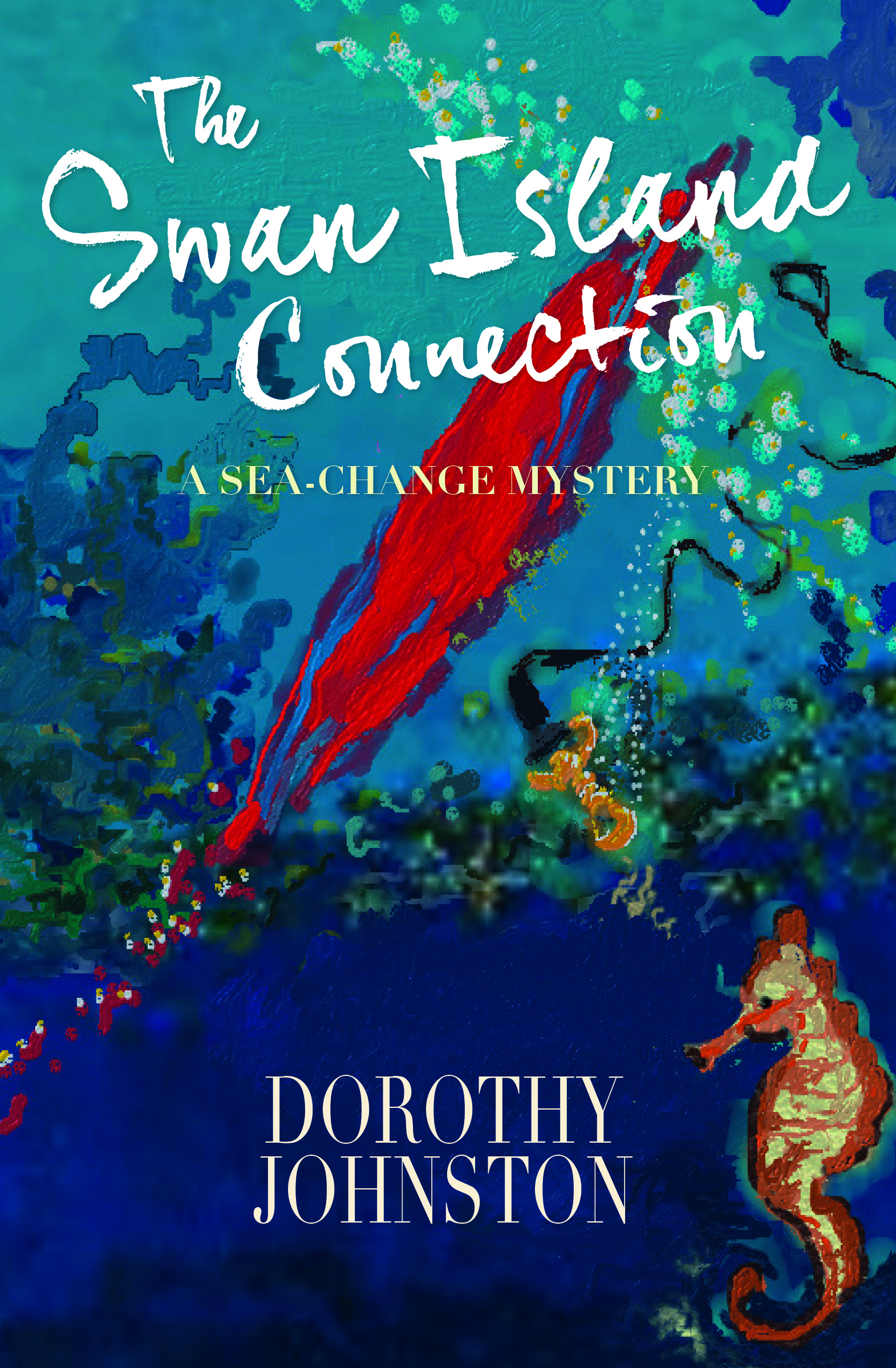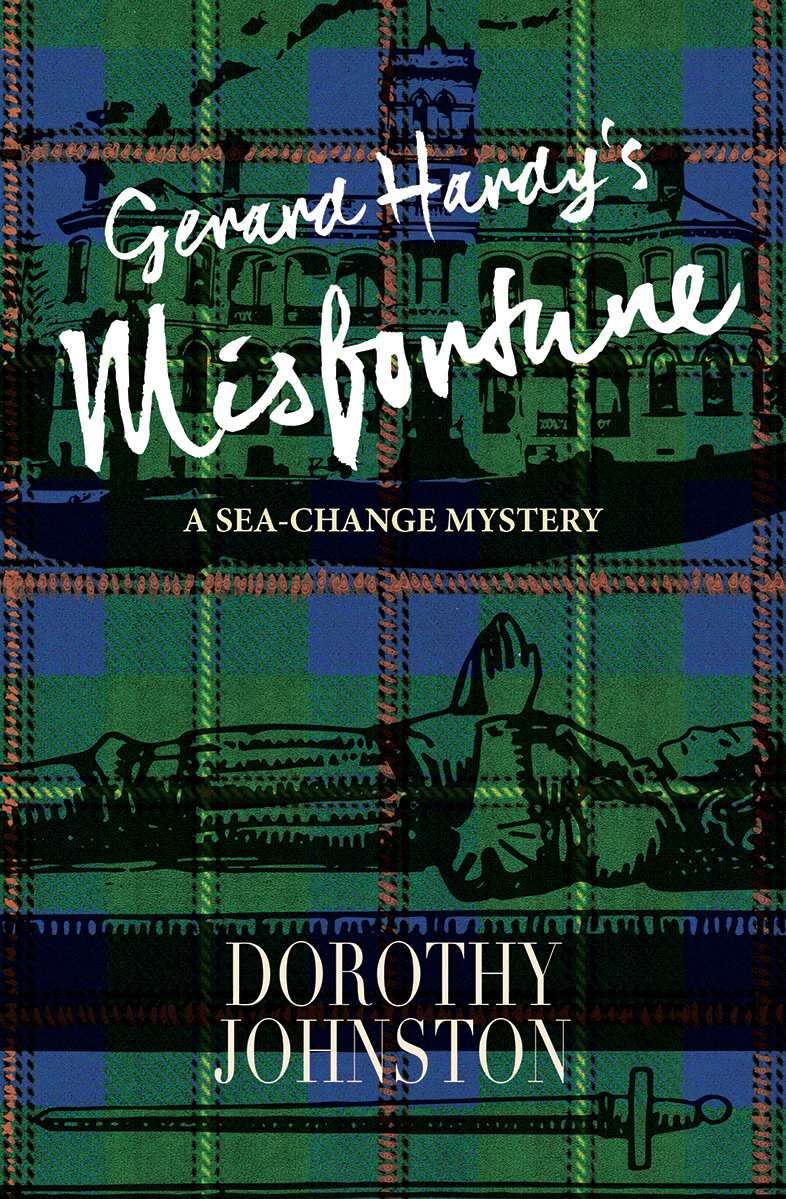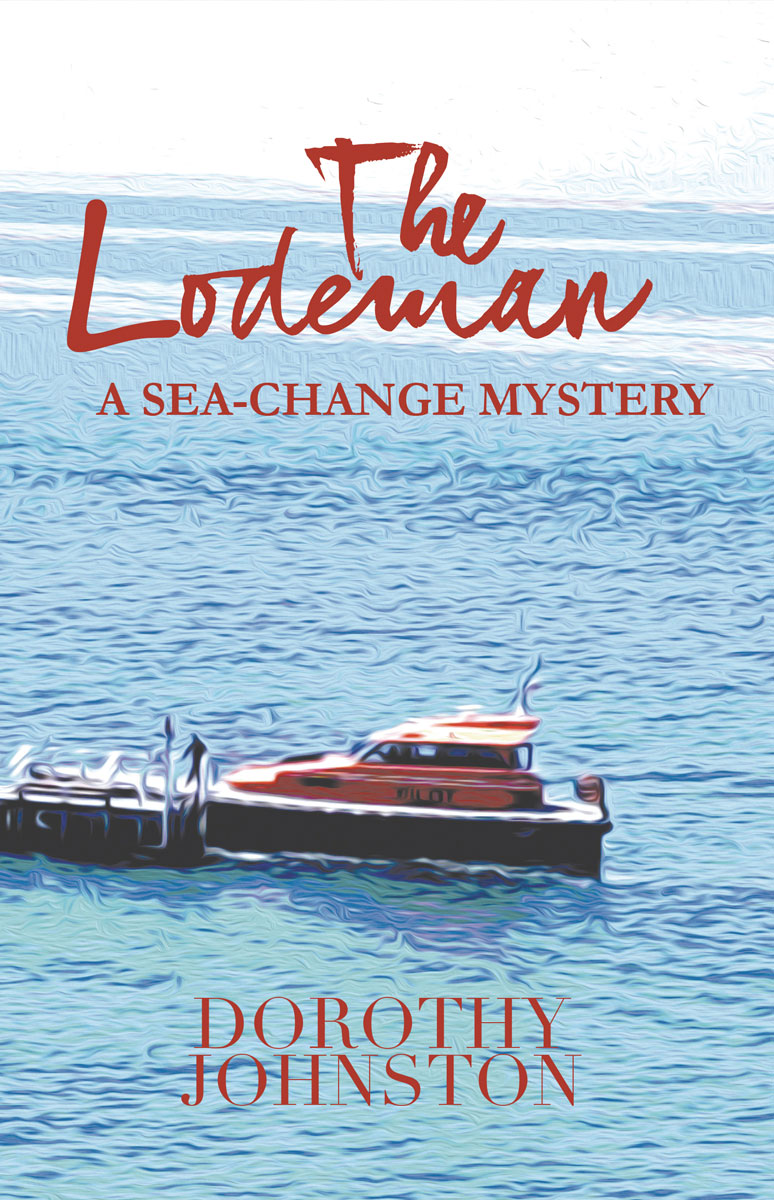I’ve just come across a brilliant prose poem, ‘The Ships’ by Constantine Cavafy. Judging by the number of English translations on the official Cavafy website, the work is well known, but I’m glad to have found it, if a trifle later in life!
This photograph of the poet dates from around 1900.
The Ships
‘From Imagination to the Blank Page. A difficult crossing, the waters dangerous. At first sight the distance seems small, yet what a long voyage it is, and how injurious sometimes for the ships that undertake it. The first injury derives from the highly fragile nature of the merchandise that the ships transport. In the marketplaces of Imagination most of the best things are made of fine glass and diaphanous tiles, and despite all the care in the world, many break on the way, and many break when unloaded on the shore. Moreover, any such injury is irreversible, because it is out of the question for the ship to turn back and take delivery of things equal in quality. There is no chance of finding the same shop that sold them. In the marketplaces of Imagination, the shops are large and luxurious but not long-lasting. Their transactions are short-lived, they dispose of their merchandise quickly and immediately liquidate. It is very rare for a returning ship to find the same exporters with the same goods…’ More
The prose poem is a wonderful evocation of the imagination as a ship and well worth reading in its entirety.
Constantine Cavafy was a Greek poet who lived most of his life in Alexandria and whose poetry went largely unrecognised in Greece during his lifetime. One of his best known poems is Waiting For The Barbarians.
Gert Loveday had done it again with another wild, whacky and delicious comic novel.
Writing Is Easy, Gert’s debut novel, is a marvellous send-up of a writing workshop and the people to attend and run it. Crane Mansions, the place, is a school for foundlings – literally babies left in baskets – presided over by Dr Crane, who is obsessed by pigeons and has created an entire philosophy built around observing them. Crane leaves the running of the school to evil Marcel Hogue and a group called the Leaders. The children, the Learners, are half-starved and bullied, made to parrot nonsensical Texts, Precepts and Axioms, and punished for failing to interpret them correctly.
This sounds grim, and on one level it’s meant to be – a satire on the worst kind of boarding school. Like all good satirists, Gert exaggerates in order to make her point, and we laugh at the ridiculous posturings of the so-called teachers, and the pupils’ schemes to get the better of them, one way or another.
But Crane Mansions is more than a simple or straight-forward satire; it has at its heart a humanity and warmth that many satires lack. Milly Lord is apparently an indigent foundling like all the other children, though she arrives as a seven-year-old rather than a baby. Milly has memories of another life, and is wise and imaginative as well. She responds to Crane’s kindness, manifested at first by offerings of cake and a willingness to listen, and gradually the whole, cruel edifice of the school begins to crumble.
The cast of humorous villains includes Trish Vowles, out to swindle Milly if she can, her partner Sam, who, in an attempt to win her back turns himself into a furiously sun-tanned and bewigged buffoon, and Eustace Pugh and Sybilla Shaw, who start off on the side of the villains but are redeemed in time.
The cover tag line reads ‘a novel about the redeeming power of cake’ and while this is obviously a joke, it also holds its own kind of truth. Crane Mansions, while sending itself up continually, and tying itself in knot after knot, is redemptive in ways that only a special kind of comedy can be. So that even the crazy Thoughts of the headmaster come to mean more than they appear to, and the Pageant at the end becomes a celebration of human ingenuity and irrepressible sense of fun.
* Gert Loveday is the pen name of writing duo Gabrielle Daly and Joan Kerr
Crane Mansions is available for sale on Amazon
This year I was privileged to judge the Barbara Jefferis Award, together with Margaret Barbalet and Georgia Blain. Actually, the award was for two years, 2013 and 2014. There were 72 entries from 32 publishers, plus a small number of self-published novels.
Here is our shortlist:
Amy Espeseth: Sufficient Grace (Scribe)
Tracy Farr: The Life and Loves of Lena Gaunt (Fremantle Press)
Jacinta Halloran: Pilgrimage (Scribe)
Margo Lanagan: Sea Hearts (Allen & Unwin)
Fiona McFarlane: The Night Guest (Penguin Books)
Margaret Merrilees: The First Week (Wakefield Press)
Drusilla Modjeska: The Mountain (Vintage Books)
A further novel was highly commended: Laura Buzo: Holier Than Thou (Allen & Unwin)
Barbara Jefferis was a feminist, a founding member of the Australian Society of Authors and its first woman president. (See my earlier post about her and the award.)
Judging the award was a lot of fun, but hard, because there were many sparkling contenders. One thing that stands out for me about our shortlist is that the books on it couldn’t be more different – apart from the quality of the writing, of course.
The Mountain is an ambitious, panoramic novel spanning the years since Papua New Guinea gained independence, while The First Week, as its title suggests, takes place over only a few days, with a small cast of characters. Sea Hearts is a fantasy novel, and The Night Guest rubs shoulders with the surreal. Jacinta Halloran explores ethical and emotional dilemmas within a realist framework, as does Tracy Farr.
By referring to genre categories, I don’t want in any way to diminish the originality of the shortlisted books, but to point out their diversity.
Another interesting point to note is that, out of seven shortlisted titles, four were published by small (or small to medium-sized) publishers, although by far the greatest number of entries were submitted by the ‘big names’ – Penguin, Random House, Allen& Unwin and so on. In making our selection, we didn’t discuss publishers at all, and it’s only now, in writing this post, that the comparison has occurred to me.
I’ll have more to say about the shortlist, but I wanted to end this post on a personal note. The award entries I’ve been reading and thinking about over the last two and a half months are associated for me with the places I read them. I live near the sea and often sat with a favourite view of Port Phillip Heads and two or three novels beside me. At other times the wind was cold, and I found a sheltered spot by the mouth of the Barwon River.
Then, as my friends who read this blog will know, my mother became ill. (She died on July 30.) I took books to the hospital to read. I couldn’t stand staring at the walls, and it didn’t seem to be any kind of insult to my mother, who loved reading and had considerable success herself, with poetry and short stories. It’s a strange kind of accident, I suppose, but some of the entries – I won’t name them – will be forever linked for me with wards and nurses and a morphine drip.
A few weeks ago I began drafting a post about the difficulties of ending novels. I was going to talk about the problems I perceived both as a writer and a reader, and how I often lay in bed after finishing a book, wondering why it had to end in just that way.
But then my mother died. Two weeks ago today, early in the morning, I got the call to say she’d passed away in the middle of the night. Ivy Johnston was 94 years old. She caught pneumonia and the doctors said that she could not recover. But then she seemed to rally, and for five days hung between life and death. Not a long time. Not long compared to many.
I’m looking now at the thoughts I’d set down on fictional endings, the points I wanted to make about aesthetics, the comparisons between musical and written language. They seem trivial and silly – yet maybe not entirely so.
I was going to compare the ending of a piece of music with a work of prose fiction or a poem, and try to capture the feeling I have when learning a piece on the piano, of looking forward to the end. When my fingers are just beginning to grasp what is required of them, when finger memory is just beginning to take hold, I begin to anticipate returning to the home key. I long for this, and the comfort of knowing that it’s there.
The home key marks the ending of a journey. But it must be the right ending and the right return. I hate aesthetic endings that come cheap, but with the ending of a real life, can this ever be said to happen?
I began playing the piano again after my father contracted Alzheimer’s. (He died in 2001.) It’s often observed that musical memory is retained after other kinds are lost. I set down my own thoughts about this once in an essay.
The truth is, I don’t yet believe that my mother has gone. I feel as though these last few weeks have been some kind of weird rehearsal and that we’ll all do better next time. When I wrote this in an email to a friend, she replied, ‘But you’ve only got one mother’. By ‘rehearsal’ I didn’t mean that another mother would step in and take over, but that mine was only practising for being dead.
On the second of those five days spent waiting in the hospital, my daughter burst into the ward, the way the sun bursts, or a sudden shower, carrying a big bunch of daphne, and my mother, her grandmother, opened her eyes and smiled.
‘These fragments have I shored against my ruins’
What a weight that verb ‘shored’ has to bear. How courageously it does so!
A Facebook page titled ‘Queenscliff Ghost Tours’ includes the following information: ‘The Royal Hotel Queenscliff, built 1853, is known to be haunted by at least half a dozen ghosts..’
On another website, I found this testimony, written by a ten-year-old boy.
As I walked down the stairs with Terry, my ghost tour guide, I could feel the floorboards sagging beneath me, and the floorboards groaning above. When we reached the bottom step, we didn’t realise that the cellar of the Royal Hotel in Queenscliff, was actually once a morgue..
Terry told us what had happened one day when two men came down into the bar for a drink. They ordered their drinks and the bartender brought them over to the table they were sitting at. They were about to pick up their beers when they heard girls giggling and the next thing they knew, their beers were knocked off the table and smashed on the floor. It is known that the ghosts are the two young daughters of the Leigh family, who sadly drowned nearby and were stored in the basement overnight before their journey to Geelong, a day’s horse and cart ride away. It is believed that during this time their spirits escaped and now haunt the hotel running along corridors and giggling into the night.
Terry also told us about other ghosts, which inhabit the hotel, like the little girl who also sadly drowned in a natural well under the hotel. The well was bricked off, but sometimes a child’s footsteps are seen in the sand near where the well was located.
As well as being Queenscliff’s first morgue, the Royal was also a mental asylum for some years. The basement windows, small and high up, are still barred.
I’m currently writing a mystery novel about a Henry Handel Richardson scholar found strangled in the Royal’s basement. Henry Handel Richardson was a spiritualist, as was her father, Walter.
I’m having a lot of fun with my characters, which include a formidable psychic and tarot card reader; the present owner (fictionalized of course) of the house where HHR lived as a small girl; and the local police constable, who is, not to put too fine a point on it, out of his depth.
My favourite ‘Royal’ ghost has not been mentioned so far. It’s that of a young woman who jumped to her death from the hotel’s tower.
Here’s how I write about her in the novel, (working title Gerard Hardy’s Misfortune). My constable’s name is Chris Laker.
‘Before long, Chris supposed, someone would write a social history of Queenscliff, and include the Royal. The murder in the basement would become part of the town’s folklore, joining the story of the woman who’d jumped in despair from the window he was standing in front of now.
Every day for weeks, this woman – Chris had no name for her, but no doubt the social historian would dig it up – had climbed the tower stairs to watch for the ship bringing her lover to Australia. It was before the days of steam. According to the versions Chris had heard – they differed in detail while remaining essentially the same – the woman had been allowed into the tower to watch. Apparently the staff had taken pity on her, but then she’d decided to stay there.
The staff had tried to coax her down, then fed her, made sure she had enough to drink. Then one night, perhaps spent and exhausted, perhaps driven to the last threads of self-control by worry and frustration, seeing at last the ship sailing through the heads, and knowing for certain that her lover wasn’t on it, she’d thrown herself from the window and smashed her body on the street below.
Chris decided that he liked this story. He liked the fact that he knew only the bare bones of it, and how there was probably a similar story for every on-the-surface-dull Australian country town. He liked how the nameless woman might have been a mental patient, kept in the basement behind barred windows; yet she hadn’t been. She’d climbed the tower of her own free will. The staff had let her keep her vigil and they’d tried to help. He thought it said something about a raw frontier town, and also about kindness.’
Bill Kirton was born in Plymouth, but has lived most of his life in Scotland. He’s written stage and radio plays, songs and sketches for revues, flash fiction, short stories, novels, stories for children and books aimed at helping students to write effective academic essays and dissertations and get the most out of university and work. He’s been a university lecturer, actor, director, TV presenter, visiting professor and artist at the University of Rhode Island and spent a few years as a Royal Literary Fund Writing Fellow in universities in Aberdeen, Dundee and St Andrews. He loves writing and exploring many forms and genres. I met Bill through the Awesome Indies website and I’ve read the first of his Jack Carston series, Material Evidence. I’m looking forward to reading the next four.
Do you think of yourself as a ‘Scottish’ crime writer and, if so, what does this mean to you?
With this year’s referendum on independence, that question’s got several levels. I was born in England but have spent most of my life in Scotland and I’m treated by most in the writing community as an honorary Scot. In fact, although I recognise and identify with the generally accepted notion of Scottish culture (a sense of community, left of centre politics, humour which is often blackish but rarely cruel, etc.), I’m uneasy about the divisive associations of any brand of nationalism. I don’t consider that my identity derives in any way from the fact that I happen to have been born on one side of a river and not the other. In fact, I’m a federalist and would prefer to be a citizen of the world. (I know, I know, that sounds pretentious, hippyish, but I mean it.) Why multiply inequalities when there are so many already? Having said all that, there’s no doubt that Scotland has a deserved reputation for producing great crime fiction and to be bracketed in that category is a privilege.
I confess to being ignorant about Scottish crime fiction. I’ve read some Ian Rankin and Alexander McCall Smith and have put my name down at the library for Laidlaw by William McIlvanney. But apart from that almost nothing, I’m afraid. Who are your favourites? What have you learnt from them?
Well, Conan Doyle is Scottish, of course, but Holmes and Watson aren’t. I’d put William McIlvanney at the top of my list. He’s a great writer and a great man – charismatic, principled, unassuming and eloquent about his Scottish roots. Ian Rankin and Val McDermid are way up there, too – serious novelists who happen to use the crime genre to examine all sorts of social, political and moral issues. They’re highly gifted, committed writers and commentators on the form but I’m not sure that I’ve learned anything from them. I could add more, but there are so many excellent writers, male and female, that this would just become a list and I’d be bound to forget to include someone.
Here’s a link to an article about ‘tartan noir’ that I found informative, and I’d be interested to hear your views on it.
Maybe this is a boring answer but I just have to endorse everything the article says. First, as I’ve already said, the man himself is extraordinary. I was in the audience at his ‘Bloody Scotland’ gig in Stirling and his charm, warmth and intelligence had everyone there (a full house) transfixed. He’s the embodiment of easy but powerful charisma. Next, the Laidlaw books are so rich that calling them ‘crime novels’ or ‘tartan noir’ seems reductive. Yes, that’s what they are, but they’re so much more. I think the use of the French word is significant. ‘Noir’ was first applied to films and while, like the films, Laidlaw’s books deal with the darker aspects of human behaviours, they also have the same underlying existential bleakness and empathy for the human condition as part of their fabric. Yes, they depict some of the basest of human impulses but as well as asking who, what, how, where and when, they also pose that most difficult of all questions, why. Tartan noir exists, McIlvanney is its greatest exponent, but he goes beyond it, too.
Do you have a view about national characteristics in crime writing? Are there any pre-occupations, or stylistic qualities, that seems to you to be held in common?
Despite what I said earlier about my uneasiness with nationalism, it can’t be denied that different nations do produce different brands of literature. Some of the best crime fiction couldn’t have been written or set in any other country but the USA – fast-talking, cool-headed loners with an inexhaustible supply of laconic one-liners, apparently fearless when faced with insuperable odds and gangs of armed-to-the-teeth hooligans whose threat they nullify with wit. Then there’s the current vogue for Scandinavian books and TV series, whose protagonists are recognisably different from their European counterparts; more thoughtful perhaps, more brooding, with the emphasis on a sort of world-weary acceptance that crime, especially murder, is an inescapable aspect of reality. Then there are all the different crime sub-genres – cosy, psychological, serial killers, private eyes, police procedurals, horror, Miss Marple-style puzzles, whodunits and whydunnits. They’re so different from one another and yet, through almost all of them, there are common themes – solving a mystery, righting wrongs (or failing to, which belongs to the same moral dimension), exposing, understanding and explaining human behaviour, creating a good-bad balance, a meaningful structure that doesn’t occur often in reality.
In Material Evidence Carston’s successful marriage (and Ross’s as well) provide a strong contrast to those of other characters. How important is this contrast? Is it developed in your later books?
The contrast is certainly deliberate but its importance lies in giving Carston (and Ross) a stability on which to base their moral judgements and their interpretations of others’ motives and impulses. For both of them, home is the antidote for some of the excesses they come across through the job. Neither of them is flawless, in fact Carston becomes more irritable and frustrated by bureaucracy and incompetence through the series and his moods manifest themselves through sometimes childish behaviour which he regrets but can’t suppress. The only thing that keeps him level is his marriage. Kath, his wife, knows him well and always uses humour to restore his equilibrium.
A crime novel with such domestic ‘ballast’ is relatively rare. I can think of Ruth Rendell’s Reg Wexford, but the loner stereotype is much more common. Are you consciously writing against this stereotype?
This is a very perceptive question. The reason I became a crime writer (as opposed to ‘just’ a writer) is that a publisher liked a novel which I’d submitted but was looking instead for police procedurals and asked if I’d try one. Material Evidence was the result. At the time, I was reading lots by Ruth Rendell (and her alter ego, Barbara Vine) and liked the ‘ordinariness’ (which isn’t meant to be pejorative), of her settings and the people in them. Somehow, the fact that her murders and other crimes occurred in the midst of simple, everyday scenes made them worse, gave them a more sinister aspect than those of gore-fests or contexts in which violence was the norm. So that was part of what I was aiming for. But also, my attitude to crime (both those I invent and the ones we see in the newspapers), is that it may be aberrant but it’s an ever-present ingredient of daily life. In books, crimes are almost always solved and their perpetrators are punished. I usually add a coda to my books to imply that, while the central crime has been solved, others are simmering elsewhere and the feeling of completeness is illusory. Having a married cop who loves and is loved and whose home life consists of good food and wine and lots of humour is a counterpoint to the notion that our world is inescapably corrupt.
Material Evidence kept me guessing till the end. Did you know the end before you started writing? How much, and in what way do you plan your books?
I don’t always know the end, or even the perpetrator, when I begin writing a book but in this case I did. As I said, it was my first crime novel so I had to do plenty of research for it and the type of death that occurs here was inspired by a couple of actual cases I read of in a book on forensic medicine. Once I had that, I could start thinking of motives and all the structures and complexities that led up to it – in fact, made it necessary. I’m not a great planner. Ideas come from all over the place (or from nowhere) but once I have one that seems to demand I take it seriously, I start thinking of what themes it’ll explore, what aspects of human nature will come into play. Once I’ve settled, however vaguely, on those, I start wondering what the characters involved will be like. I start writing, these characters emerge, and they take over, leading me in various directions, showing me who they are through their words and deeds. Sometimes, they surprise me and take me towards motives or conclusions which I hadn’t considered. Sometimes, the murderer I’ve chosen turns out to be innocent and one of the others does the killing instead. That makes it all sound erratic, untidy, but it comes out of a narrative logic which is dictated by the relationships of these characters. So far they haven’t let me down.
I liked the humorous exchanges between the policemen and women, which made them come alive for me. They suggested an ambivalent ease with one another, and also Carston’s authority, which he exercises firmly without being domineering. Ross sometimes talks back to him, for example. Yet Carston is an outsider, only recently arrived in Cairnburgh. Is his ‘outsider’ status important in the series?
For me, humour is a vital part of any human interaction (although it’s noticeably absent from these answers). OK, if there’s tragedy or horror involved, it’s in the background, but hearing people take the mickey out of one another, exchange pretend (or real) insults, indulge in swapping one-liners – that makes them real, punctures any potential ‘literary’ pretentiousness. The type of humour they use also helps to distinguish them from one another. Carston doesn’t seek to be an outsider but his attitudes to his (admittedly inept) superiors make it inevitable. I think it may be more complex than that, though. I think it’s probably part of my constant awareness of the artificiality of a genre in which all problems are solved, villains get punished and law and justice are synonymous. Real life is chaotic, unstructured, meaningless and murderers and others get away with it. Paradoxically, crime fiction sanitises it, gives it structure and balance. I’ve maybe given Carston my own attitudes to all that. In fact, I know that’s definitely the case in the third book, The Darkness.
In an interview on the LL –Publications blog, you speak of ‘Getting the rhythms of those words right, using them to create new meanings or characters, structuring fictions in pleasing ways – ’ These are general aims to which all fiction writers might be said to aspire. Crime fiction, however, imposes its own framework and sets limits to so-called ‘literary’ qualities. These limitations can be stimulating, or restricting – or both at once. At least that’s my view. How do you approach and work out questions of aesthetics? Do you think in terms of aesthetic resolutions as compared with, or opposed to, plot ones?
I know what you mean about crime fiction discouraging certain ‘literary qualities’ but I don’t agree entirely with you. Yes, steer clear of lines such as one I remember from an Albert Finney character in a stage play years ago, when he spoke of ‘lurching from one derelict sunset to the next’, but don’t shy away from literary tricks that could add to the reader’s pleasure. At the risk of appearing immodest, let me offer a wee example of deliberate alliteration from another of the Carston books. Two characters are chatting at a post funeral buffet. One is a very messy eater and, as he speaks, has a mouthful of sandwich.
“All the same… Foul play, that sort of thing… It’s preposterous.”
He waited. Carlyle’s only reaction was a small shake of the head and an unheard prayer that Leith would use fewer plosives.
“I mean, persistent police probing.’
OK, it’s hardly ‘literary’ in the sense of purple prose, but it’s a deliberate stylistic choice. And I always maintain that one of the essential aspects of style – in any genre – that’s not always given the consideration and attention it needs is rhythm. Ugly, unbalanced prose unsettles the reader. It’s as bad as a direct authorial intrusion. The length of words and sentences, the frequency of pause points, the overall feel of the rise and fall of intonation – these all contribute to the pleasure of reading. I’m a fan of Elmore Leonard’s ten (tongue-in-cheek) ‘rules’ for writers. He sums them all up by saying ‘If it sounds like writing, I rewrite it’. I love words, images, stylistic flourishes but if a writer indulges him or herself, they intrude, they disrupt the narrative. One of the basic bits of writing advice I give when asked is to separate the functions of writer and editor. You can be free and self-indulgent when you’re writing a first draft but only if you’re strict with yourself when you revisit the text as editor. You can create characters who use colourful – even literary – language but, as narrator, you must stay out of the text.
You describe Cairnburgh as a fictional town near Aberdeen. Why did you decide to create a fictional town for your series?
Another Rendell influence, I’m afraid, and one that I regret. Her Kingsmarkham setting was real to me as a reader and allowed her to create whatever she needed for her plots. I decided that, since I was planning on making some of my policemen inept, even corrupt, it might be wiser to create a fictional place rather than set my books in Aberdeen and risk getting parking tickets and other harassments. In fact, the year after the book was published, there was a scandal involving the Chief Constable of Grampian which was worse than anything I could have imagined. On the other hand, the freedom to invent places and institutions without fear of libelling anyone by proxy allowed me to set one book in a university/hospital without fear of lawsuits from ex-colleagues in Aberdeen University. But I think nowadays readers prefer their policemen and criminals to be in real cities and places.
You are very good at dialogue. Did you learn this skill through writing radio and other plays? Was there anything you had to unlearn when it came to writing novels?
Thanks for the compliment. When I first starting writing (as an adult) I gravitated naturally towards drama so I suppose I must have felt comfortable with dialogue. I still had lots to learn about radio drama, though. (One example, reasoning that lots of blind people listen to the radio, I made a central character in one play blind. When it was being recorded, the producer pointed out how difficult it was to convey blindness on radio, so I had to write some extra dialogue.) One thing I did find with novels was that, when I read sequences aloud (as part of my editing process), the dialogue wasn’t nearly as natural as it had been in my plays. I suspect that writing extended prose narratives gets one into particular rhythms which don’t belong in speech. For that reason, I pay particular attention to correcting dialogue. Incidentally, the voice (my voice) you hear in these answers is significantly different from the one you’d hear in conversation. Dialogue is, mostly, spontaneous, unstructured.
I saw on your Amazon biography that you used to teach French. Who are your favourite French writers in general, and your favourite French crime writers? I recently discovered Fred Vargas and have enjoyed several of her books. Does being bi-lingual help when it comes to writing in English, or is it irrelevant?
As I’ve answered these questions, I’ve realised that each one could easily be the subject for quite a long essay, and this is no exception. My answer, though, is going to be disappointing because, although I know how popular Fred Vargas is, I haven’t been able to get into her works. Maybe I’ve just chosen the wrong ones, but there’s a surprising lack of pace in those I’ve attempted. It’s easier to talk about French writers in general because I used to give classes on authors from the middle ages to Sartre and the rest. I love and admire the greats of the 19th century, especially Flaubert. I’ve lost count of the number of times I’ve read Madame Bovary and I still read bits of it now and then, just to marvel at how not a single word is wasted or misplaced, how the gaps between events are as important as the events, how tragedy and comedy can coincide, how imagery can be substituted for narrative, etc., etc. I think the history of French literature is rich in contrasts, reactions, counter-reactions and I love the clarity of the demarcations between periods, fashions, schools and how they reflect so accurately everything else that was happening in their particular era.
To find Bill Kirton’s books for sale go to Amazon UK and Amazon US, and to read more about the books, go to Bill’s website.
I want to thank Maryann Miller for her generous review of The Fourth Season, the final book in my Sandra Mahoney mystery quartet. Maryann joins a growing list of reviewers who have enjoyed the novel, and I very much appreciate the time and trouble they have taken.
A few weeks ago, I wrote a blog post about Indie reviewing. That was before I’d come across an article in the Guardian by John Self, criticising Booker prize head judge, Peter Stothard, for bagging Indie reviewers.
In my post, I suggest that bloggers should set the bar higher than an ‘I like this: I don’t like that’ kind of review, but I fail to give enough credit or praise to those people who are drawing on a lifetime’s reading and thinking about books to offer invaluable insights and discussions.
Maryann Miller lives in Texas. Others who’ve reviewed my books live in the US too, and the UK, France – indeed all over the world. It’s a joy to me to have made these connections!
The Sandra Mahoney Quartet can be purchased from Wakefield Press, who are offering a special: four books for the price of three. The novels are also available on Amazon and other ebooks sites.
And another good review of The Fourth Season has just come in, this time from ‘Long and Short Reviews’.
This is the third in my series of posts about Australian poets. The first two are Suzanne Edgar and Joan Kerr.
Geoff Page is one of Australia’s best known and widely-published poets. He is based in Canberra and has published twenty-one collections of poetry as well as two novels and five verse novels, and has won many awards. Rather than include a lot of biographical information in this post, I suggest readers follow the link to Irma Gold’s excellent interview.
The Deputy
for J.F.
Driving daily into work,
he feels them equally as pressures,
atmospheric almost,
one more urgent than the other
but pressure all the same.
Both could justify a life,
one with what the young retain
and carry with them through the years,
the other more diffuse
and closer to the core,
resonances rising
from something deeper down,
more opaque than God perhaps,
rhythms, lines and images,
a gift that needs real readiness
before it can arrive.
Of course, one may excel at both.
No doubt a man may serve two masters.
Last year he taught them Doctor Faustus,
the senior class he still keeps on.
He thinks about the famous bargain,
the heavy freedoms of its power,
the good opinion held so widely,
the parent-teacher nights and, yes,
the jokes he makes at school assemblies
to show he’s serious.
At home though there’s a desk
With untouched paper and a screen,
an ideas file, a journal,
a mix of discipline and licence
to bring in pocket money only,
scuffling below the dole.
A friend of his has chosen this,
insecure and frugal
and prone to bitterness.
A third has signed a smaller deal,
holding off from higher slots
if ever they were offered.
Who is his Mephistopheles?
It’s not the principal.
He thinks perhaps they are collective,
these senior teachers who respect him,
who cannot let him go,
who see that he can make things happen
and keep a keel on course.
To them, this other life he has
is hardly more than self-indulgence,
a foible or some pleasant extra,
a flourish or addendum
to make a CV more compelling.
His watch says 8 am.
He turns into the car park now,
an hour before the world begins
its unforeseen complexities,
its smoke and mirrors of the human,
the needs that only he can meet.
The car is small and European,
very fast from nought to ninety.
He walks towards the building…
and sees, back home, that writing desk
patient in its shaft of light,
the blank page and a keyboard waiting,
the pressure of the poem.
‘The Deputy’ appeared in Meanjin 2, 2014. Thank you, Geoff, for allowing me to reproduce it here, and to Meanjin for publishing it.
I read the poem with an instant, deep feeling of recognition. In sixty-three lines, it says an enormous amount about the life of art, the choices and hard bargains, and the ways these are carried within a person life-long.
The voice is quietly authoritative, unsentimental, uncomplaining. The deputy headmaster, who is also an artist, must weigh up and doubt and compare, and go on doing so. This is his destiny. But it’s not an intellectual exercise – the pressures are heart-felt.
And the last line is superb, shining undimmed by the teacher’s daily, ‘other’ life, yet given meaning by it and by the poem as a whole.
I was reminded of the last stanza of Yeats’s ‘Meditations in Time of Civil War’, and ‘the half-read wisdom of daemonic images’ with which Yeats comforts himself, while understanding that Page’s poet/public man is a very different character.
A wonderful poem! I hope many readers get the chance to discover and enjoy it.
The inspiration for this post comes from a review on Guy Savage’s blog, His Futile Preoccupations or The Years of Reading Aimlessly, which I recently discovered thanks to fellow novelist and poet, Joan Kerr. Joan also hosts a sparkling blog, with her sister, under the pen name Gert Loveday.
Guy Savage criticises best-selling author Joel Dicker for over-reaching himself, biting off more than he can chew, in Dicker’s recently published The Truth About the Harry Quebert Affair. I read the critique with a start of recognition, for it touched on something that I’ve been feeling increasingly myself, both in writing paid reviews for newspapers, and those I’ve undertaken for no payment, as an indie author and reviewer.
It’s a common fault with inexperienced, (often self-published) authors, that they reach – it seems unhesitatingly – for the sky, that the scope of their narratives is panoramic, while their prose is barely up to describing a blade of grass. Can this disparity, between ambition and skill, be dismissed as a form of hubris? Could it be a way of learning how to write? In the grasp and falling back, an author might well be discovering what is truly within his or her capacity. One can dare to fail. I’ve been guilty of that daring and that fault myself.
But these days, (perhaps like Guy Savage), I’m less willing to make allowances for best-selling authors, already secure in their stardom. Last year I reviewed, for the Fairfax newspapers, Sarah Dunant’s Blood and Beauty, a title destined for the best-selling lists if ever there was one. I found it bloated, over-long, and redolent, more than anything else, of the author’s ego.
The title of this blog post is borrowed from an essay by Ivor Indyk in the Australian Book Review, November 1997, well before the explosion of book review blogs that have changed not only the face but the entire body of reviewing, and what is understood by literary opinion and authority. In a way that seems prophetic now, Indyk stated that ‘the critic’s authority is a reader’s authority. Criticism is the reflective aspect of reading, present to a greater or lesser extent in the experience itself, not detachable from it.’ Book bloggers often disclaim any authoritative status, professing instead to express ‘personal’ opinions. They often use the word ‘honest’ as well; it is as though these claims, to personal opinion and honesty, absolve them from analysis, or comparative judgements built up over a period of reading and reflecting, or a knowledge of literary traditions and history.
So many opinions and judgments are now being offered publicly, not just to a circle of friends, or private book discussion group, that anybody trying to negotiate them faces a daunting task. This is happening at the same time as traditional newspaper reviews are drastically shrinking.
As a traditionally published fiction writer and a professional (ie paid reviewer) who has moved into publishing her own ebooks, and writing reviews of other indie authors, I welcome the new opportunities, and indeed could not think of myself as having any kind of a writing future without them. But I also believe that publishing one’s opinions carries a responsibility; first of all to read the book the author has actually written, whether or not it conforms to expectations raised by a particular genre, or whatever happens to be the current fashion with regard to style; and secondly, by suspending the expectations of personal taste. The gratification of personal taste should not be at the forefront of a reading experience, when that experience is undertaken with a view to publishing world-wide.

